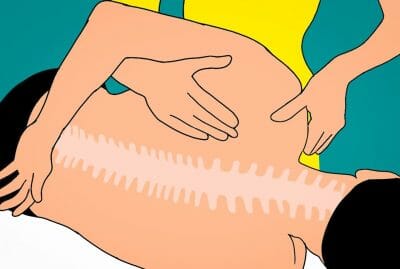If you have injured your spinal cord, it is essential to seek medical attention immediately. Depending on the severity of the injury, you may need surgery or other treatments. You can also do things at home to help improve your condition. This blog post discusses some steps you must take if you have injured your spinal cord.
Follow your doctor’s orders
Your doctor can determine the best course for treating your spinal cord injury. You must follow these instructions and recommended treatments to ensure a successful outcome. This may include bed rest, physical therapy, or medications. If possible, you should always keep a copy of your doctor’s orders and medical records to serve as your reference when making decisions about your care. For instance, if you want to seek a second opinion, your medical records will be essential. Additionally, if you have sustained spinal cord injuries because of your job, your medical records will help you file for workers’ compensation. A reputable lawyer handling spinal cord work injuries in Houston recommends that you keep all records of your treatment organized to make it easier for you to access them. You should also be sure to keep all receipts related to your treatment and medications.
Educate yourself on spinal cord injuries
Learning about spinal cord injuries can help you understand what needs to be done to help you recover. The National Spinal Cord Injury Association provides resources and support for those with spinal cord injuries. Reading books, listening to podcasts, and watching videos about spinal cord injuries can give you a better idea of what to expect during your recovery process. For example, you may want to learn about new treatments, exercises, and activities that can help improve your quality of life. You should also find out what types of assistance are available for those with spinal cord injuries, such as home health care, financial aid, and job training resources.
Recover at home
Apart from following your doctor’s orders and learning more about your injury, you can do a few things at home to speed up your recovery. You must get plenty of rest and limit strenuous physical activity. Additionally, you should move around carefully and slowly to avoid further injuring yourself. You may also want to look into additional treatments, such as acupuncture or special massage techniques, that can help with pain management. Working with a physical therapist can also be beneficial in assisting in regaining movement and strength in the affected area of your body. If your doctor prescribes, use any assistive devices such as wheelchairs, canes, or braces to help reduce the risk of further injury.
Manage pain
Depending on the severity of your injury and any residual pain, you may need to take medications or engage in other treatments to manage the discomfort. Talk to your doctor about what type of medication is best for controlling pain and which should be avoided. You may also find it helpful to practice relaxation techniques such as deep breathing and meditation. Other pain relief methods may include hot/cold therapy, foam rollers, stretching exercises, or physical therapy. But remember that hot/cold therapy can be done with a heating pad or cooling pack and should only be used for short periods, while foam rollers help to loosen tight muscles and should be used gently.
Rehabilitation
If you experience paralysis or other limitations due to your injury, rehabilitation is critical in helping you recover. A physical therapist can provide specific exercises and treatments designed to help improve your strength and mobility. Your therapist may also recommend assistive devices such as braces, walkers, and wheelchairs to help you move around more efficiently and safely. Additionally, occupational therapy may be recommended to help develop skills and techniques needed to perform daily tasks and activities. Occupational therapists can also provide resources such as job training and support to help you re-enter the workforce.
Develop a support system
Having the right people with you during your recovery is essential to recovering from spinal cord injuries. Make sure to find friends and family willing to provide emotional and practical support throughout the process. Additionally, joining a support group where you can connect with people dealing with similar challenges might be beneficial. This can be a great source of encouragement and positive energy while you work your way through recovery. You can also reach out to organizations that provide resources and support for those living with spinal cord injuries.
In conclusion, recovering from a spinal cord injury can be a long journey, but understanding the necessary steps to take can help you on your path toward recovery. Remembering recovery from a spinal cord injury takes time and patience, so remain cheerful and seek emotional support whenever needed. Luckily, many resources are available for spinal cord injuries, so don’t hesitate to reach out for help.
